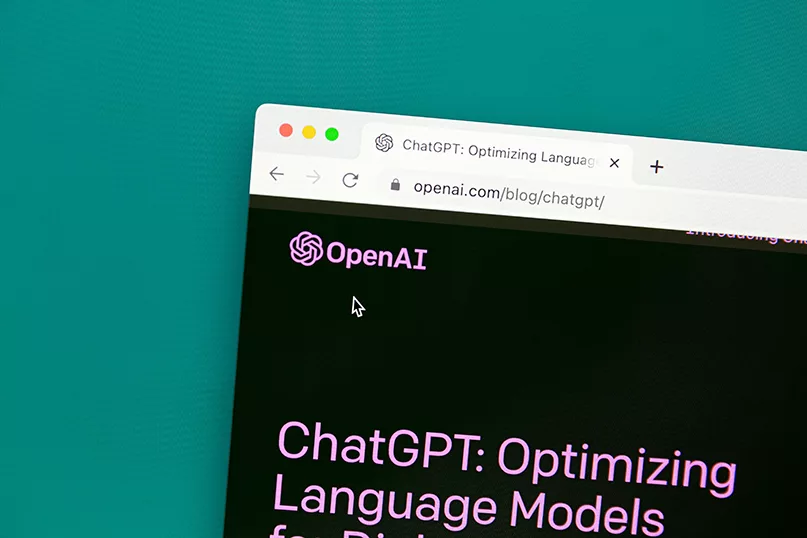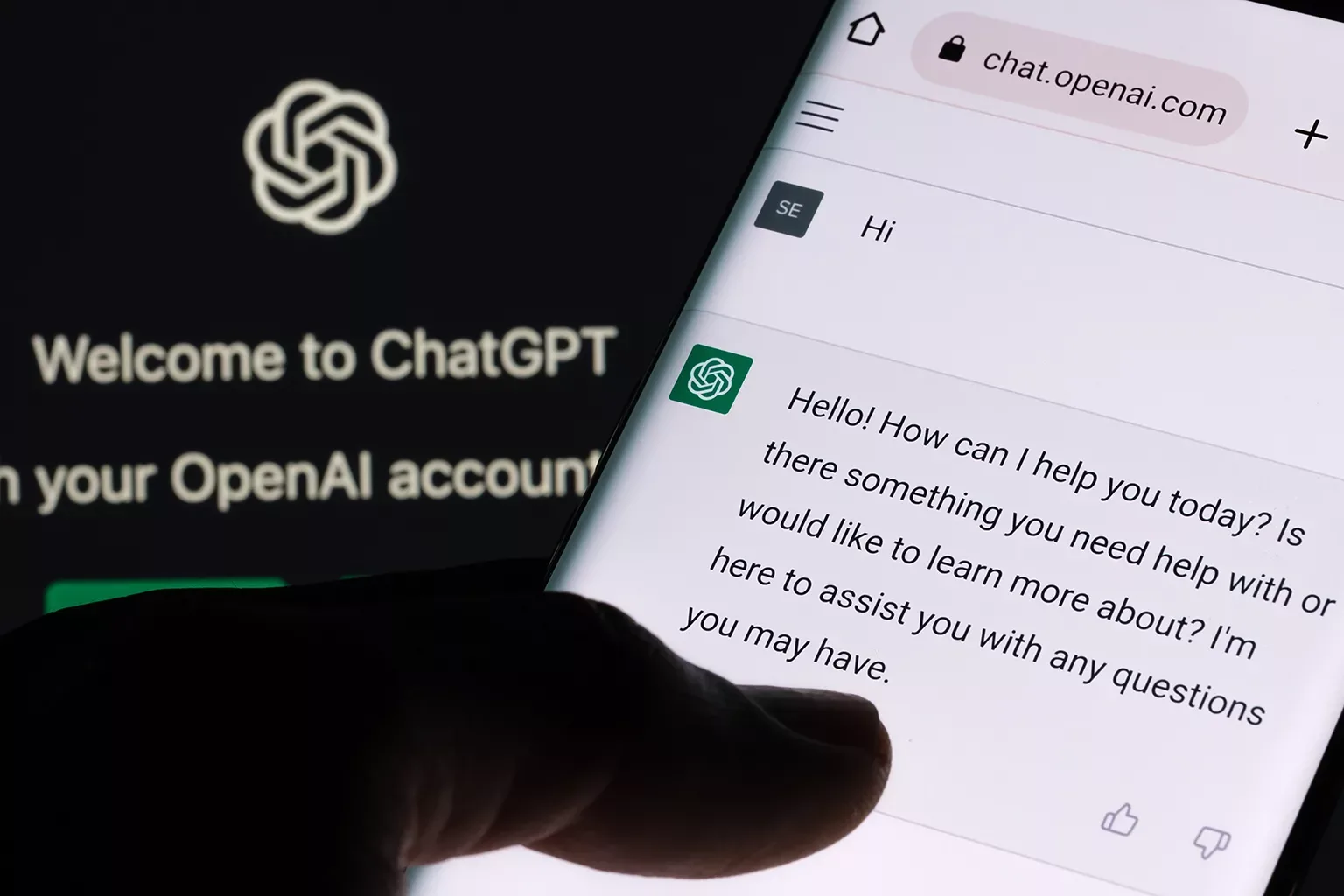Professor Dr Iris Lorscheid, Vice-Rector Research and Professor of Digital Business and Data Science Computer Science at University of Europe for Applied Sciences, shares a hybrid intelligence perspective on AI and ChatGPT.
Early reactions to the internet’s development were a mix of excitement, curiosity, and skepticism. At the time, its potential was not fully understood. Many people saw the internet in its early days as a niche tool used primarily by academics, researchers, and technology enthusiasts. Despite the sense of possibility and excitement, there was some skepticism about its viability. As with any new technology, there were concerns about its impact on society. Some feared that the Internet would jeopardize privacy and security, while others feared that it would increase isolation and alienation.
Of course, the internet has now become an indispensable part of our lives, with far-reaching implications for society and culture. It has fundamentally altered how we communicate, learn, conduct business, and was our lifeline during an unprecedented global pandemic lockdown.
Looking at the stories of such ground-breaking innovations, we identify reoccurring cycles of fear, skepticism, acceptance, and positive impact. Now, with the development of artificial intelligence (AI) we ask the question: is this just another innovation?
With the introduction of ChatGPT, the general public gained access to experience the current capabilities of AI, and the experience is remarkable. The revelation of ChatGPT has sparked both amazement and fear. The fear of AI lies in the realisation that systems like ChatGPT possess intelligence and problem-solving abilities that rival our own. Even artistic and creative fields, which were previously thought to be solely human abilities, are now being addressed by image-creating AI systems such as DALL-E. This implies the emergence of something powerful, perhaps even something surpassing our comprehension and capacity for control.
Looking at the potential of AI from a hybrid intelligence standpoint, we can view this development as a chance to have an effective tool to address the issues of a challenging and increasingly complex world. AI helps us to extend our human capabilities and to work on an improvement in our quality of life.
The concept of “Hybrid Intelligence” was introduced by Dominik Dellermann to describe the collaboration between human intelligence and AI to achieve more effective problem-solving and decision-making. The focus is on developing more advanced AI systems that can work with humans in the best possible way.
Together, humans and AI can create solutions that neither could achieve alone. By combining the strengths of both, complex problems can be solved, and new insights can be gained faster, more successfully, and more comprehensively than by working individually.
“Together, humans and AI can create solutions that neither could achieve alone”
Prof. Dr. Iris Lorscheid, Vice-Rector Research and Professor of Digital Business and Data Science Computer Science, University of Europe for Applied Sciences

We should not focus on what AI can replace, but on how we can succeed in working together with AI and how this collaboration can lead us to new horizons.
To make this happen, we need to interact with AI in the best possible way. It is very enjoyable to follow the navigation system without questioning the route. Yet when the route leads us via congested, narrow streets in the city centre rather than longer, less stressful alternatives, we start to be annoyed. The system failed to implement our preferences. In a manufacturing scenario, AI could monitor machinery and equipment to predict when maintenance is needed, reducing downtime. It is critical that AI learns from the correct data provided by humans and does not misinterpret minor variations as signs of failure. Simultaneously, the AI must present the analysis results in such a way that the appropriate human conclusions can be drawn, and the right measures follow from the system alert.
Successful interaction between AI and humans occurs when human experts and AI work hand in hand. A powerful AI system such as ChatGPT was trained with human feedback. By receiving feedback from people, the AI learned which formulations are more readable and human-like than others.
The protein folding problem was solved through close collaboration between human expert knowledge and the development of AlphaFold, a DeepMind AI system. Structural biologists and biochemists provided data and validated AlphaFold’s predictions, while the AI system provided new insights and predictions that exceeded human capabilities. This collaboration accelerated scientific progress remarkably.
At Stanford University, the AI system SkinVision was developed to support the diagnosis of skin cancer. SkinVision combines the power of AI with the expert knowledge of human dermatologists, who trained the system by providing feedback on smartphone image classification. SkinVision, an app for smartphones, identifies skin lesions and encourages users to seek medical attention from dermatologists if necessary. Dermatologists, on the other hand, could improve their treatments by using the information provided by AI, resulting in better patient outcomes. These and many other examples demonstrate how productive interactions between AI and humans can result in significant advancements.
To conclude, yes, AI is yet another innovation that can only thrive if the application and practical use of the new technology is successfully designed. Human-centered innovation means that the innovation was created with the human in mind, rather than against the human. AI technology innovation can take many forms, from new products and services to improvements in processes and business models. The success of its application necessitates a collaborative approach that includes experts in both technology and problem domain.


































